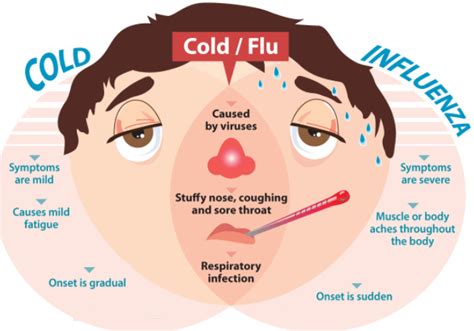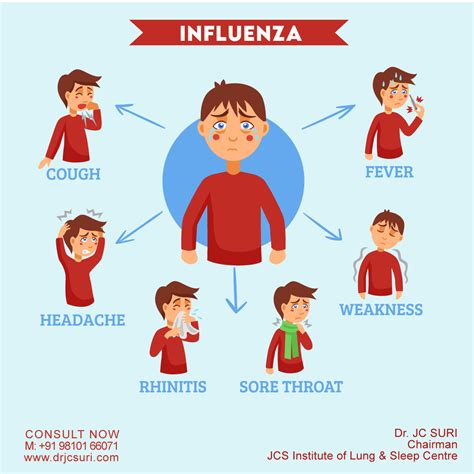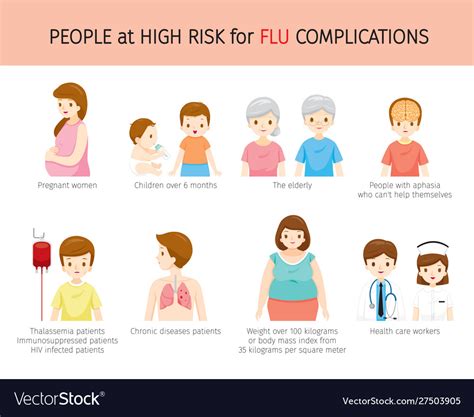Intro
Identify flu and virus symptoms, including fever, cough, and fatigue, and learn about prevention, treatment, and management of respiratory infections and illnesses.
The flu and virus symptoms are a common occurrence during the winter months, affecting millions of people worldwide. The flu, also known as influenza, is a highly contagious respiratory illness caused by the influenza virus. It can cause mild to severe illness, and in some cases, can lead to serious health complications. Understanding the symptoms of the flu and other viruses is crucial in seeking medical attention and preventing the spread of illness. In this article, we will delve into the world of flu and virus symptoms, exploring their causes, effects, and prevention methods.
The importance of recognizing flu and virus symptoms cannot be overstated. Early detection and treatment can significantly reduce the risk of complications and transmission to others. Moreover, being aware of the symptoms can help individuals take preventive measures, such as getting vaccinated, practicing good hygiene, and avoiding close contact with people who are sick. As we navigate the complexities of flu and virus symptoms, it is essential to stay informed and proactive in maintaining our health and well-being.
The flu and virus symptoms can be debilitating, affecting not only our physical health but also our mental and emotional well-being. The constant fatigue, body aches, and congestion can make everyday tasks seem insurmountable. Furthermore, the fear of transmission and the pressure to recover quickly can add to the stress and anxiety. However, by understanding the causes and effects of flu and virus symptoms, we can better equip ourselves to manage and prevent them. In the following sections, we will explore the different aspects of flu and virus symptoms, including their causes, symptoms, diagnosis, treatment, and prevention.
Causes Of Flu And Virus Symptoms

The influenza virus is a type of RNA virus that is constantly evolving, with new strains emerging every year. This makes it challenging to develop a vaccine that provides long-term protection. However, the flu vaccine is still the most effective way to prevent the flu and its complications. The vaccine works by stimulating the body's immune system to produce antibodies that can recognize and fight the flu virus. By getting vaccinated, individuals can significantly reduce their risk of getting the flu and prevent the spread of illness to others.
Types Of Flu Viruses
There are three main types of flu viruses: A, B, and C. Type A and B viruses are responsible for the seasonal flu outbreaks, while type C viruses are typically mild and do not cause significant illness. The type A virus is further divided into subtypes, such as H1N1 and H3N2, which are responsible for the majority of flu cases. Understanding the different types of flu viruses is essential in developing effective vaccines and treatments.Symptoms Of Flu And Virus

These symptoms can be debilitating, making it challenging to perform daily tasks and maintain productivity. In some cases, the flu and virus symptoms can lead to serious complications, such as pneumonia, bronchitis, and sinus infections. It is essential to seek medical attention if symptoms persist or worsen over time.
Diagnosis And Treatment
Diagnosing the flu and virus symptoms can be challenging, as the symptoms are similar to those of other respiratory illnesses. A healthcare professional can diagnose the flu by performing a physical exam, taking a medical history, and conducting laboratory tests, such as a rapid influenza diagnostic test. Treatment for the flu typically involves rest, hydration, and over-the-counter medications to manage symptoms. In some cases, antiviral medications, such as oseltamivir or zanamivir, may be prescribed to reduce the severity and duration of symptoms.Prevention Methods

By following these prevention methods, individuals can significantly reduce their risk of getting the flu and prevent the spread of illness to others. Additionally, maintaining a healthy lifestyle, such as exercising regularly, managing stress, and getting enough sleep, can help boost the immune system and prevent illness.
Importance Of Vaccination
Vaccination is the most effective way to prevent the flu and its complications. The flu vaccine is typically administered annually, and it is recommended for everyone six months and older. The vaccine is especially important for high-risk groups, such as older adults, young children, and people with chronic health conditions. By getting vaccinated, individuals can not only protect themselves but also prevent the spread of illness to others.Complications Of Flu And Virus

These complications can be debilitating and require hospitalization. In some cases, they can even be fatal. It is essential to seek medical attention immediately if symptoms persist or worsen over time.
High-Risk Groups
Certain groups are at higher risk of developing serious complications from the flu and virus. These groups include: * Older adults * Young children * People with chronic health conditions, such as heart disease, diabetes, and asthma * Pregnant women * People with weakened immune systems, such as those with HIV/AIDS or undergoing chemotherapyThese groups should take extra precautions to prevent the flu and its complications, such as getting vaccinated, practicing good hygiene, and seeking medical attention immediately if symptoms occur.
Managing Flu And Virus Symptoms

By managing flu and virus symptoms effectively, individuals can reduce the risk of complications and prevent the spread of illness to others.
Importance Of Self-Care
Self-care is essential in managing flu and virus symptoms. This includes: * Getting plenty of rest and maintaining a healthy diet * Staying hydrated and avoiding close contact with people who are sick * Practicing stress-reducing techniques, such as meditation and deep breathing * Avoiding smoking and secondhand smoke * Getting enough sleep and maintaining a healthy weightBy prioritizing self-care, individuals can boost their immune system and prevent illness.
Conclusion And Final Thoughts

We invite you to share your thoughts and experiences with flu and virus symptoms in the comments below. Have you or a loved one ever had the flu? What steps do you take to prevent the flu and its complications? Share your story and help others stay informed and proactive in maintaining their health and well-being.
What are the most common symptoms of the flu?
+The most common symptoms of the flu include fever, cough, sore throat, runny or stuffy nose, headache, and fatigue.
How can I prevent the flu and its complications?
+You can prevent the flu and its complications by getting vaccinated, practicing good hygiene, such as washing your hands frequently and covering your mouth and nose when coughing or sneezing, and avoiding close contact with people who are sick.
What are the high-risk groups for developing serious complications from the flu?
+The high-risk groups for developing serious complications from the flu include older adults, young children, people with chronic health conditions, such as heart disease, diabetes, and asthma, pregnant women, and people with weakened immune systems.
How can I manage flu and virus symptoms effectively?
+You can manage flu and virus symptoms effectively by resting, staying hydrated, taking over-the-counter medications to manage symptoms, using a humidifier to relieve congestion, and practicing good hygiene.
Why is self-care important in managing flu and virus symptoms?
+Self-care is important in managing flu and virus symptoms because it helps boost the immune system, reduces stress, and prevents illness. Self-care includes getting plenty of rest, staying hydrated, practicing stress-reducing techniques, and avoiding close contact with people who are sick.
